Coronavirus Nursing Home
Coral Springs, Florida: The Covid-19 pandemic has deeply impacted all of us in Florida and across the country. Tens of thousands of lives have been lost, and many more have fallen ill from the virus. Our daily routines have been upended, and countless people have lost their jobs and livelihoods. One particular place where the effects of coronavirus have been especially devastating is in nursing homes, where thousands of people have died or become sick due to coronavirus infections.
At Law Offices Cytryn & Velazquez, P.A., our office is located in Broward County, home to dozens of nursing homes. Many cities in Broward, including Coral Springs, Tamarac, Pembroke Pines, Hollywood, Hallandale, and Dania Beach, have very large populations of older persons living in nursing and long-term care facilities, including Adult Living Facilities (ALFs). The same is true for nearby Boca Raton and Miami-Dade County, where thousands of people reside in nursing homes and other long-term care facilities.
If you, a family member, or a loved one contracted coronavirus in a Florida nursing home, contact our office at (954) 833-1440 for a free consultation.
Our attorneys are operating remotely, so we can communicate with you without you needing to worry about leaving your home. Our Coronavirus Nursing Home Lawyers in Florida have decades of experience handling nursing home negligence cases.
Coronavirus has Been Spreading Rapidly Through Nursing Homes
As of mid-April 2020, more than 3,400 nursing homes and long-term care facilities across the country have reported cases of Covid-19 in their facilities. And we have seen reports that more than 7,000 nursing home and long-term care facility residents have died as a result of coronavirus. Sadly, the real number of deaths is likely significantly higher (and rising) because some states have not publicly disclosed the number of deaths in nursing homes. Whatever the true number is, there is no question that coronavirus has been incredibly harmful to nursing homes across the country.
Nursing homes present the prospect of a perfect storm for coronavirus infection: a vulnerable population of older persons, many of whom have underlying chronic medical conditions and are immunocompromised, living in close quarters with one another. But this certainly does not mean that the spread of coronavirus in nursing homes was inevitable. In fact, as explained below, there are many precautions that nursing facilities should have taken, and should continue to take, in order to protect their residents. Nursing homes were well-aware of the risks associated with the spread of infections like coronavirus within their facilities. And the failure of these facilities to take the necessary steps to protect their residents is inexcusable.
Our Florida Coronavirus Nursing Home Attorneys are presently accepting new cases where somebody has become ill or died as a result of contracting coronavirus in a Florida nursing home or other long-term care facility. Contact our office for a free consultation.
Nursing Homes Have a Legal Duty to Care for Their Residents
Under Florida and federal law, nursing homes have a responsibility to care for their patients, many of whom simply cannot take care of themselves (which is, of course, the reason they are in the nursing home in the first place). Nursing homes are highly regulated entities by both the Florida and federal governments, and they are required to abide by a wide range of state and federal laws and regulations. Many of these laws and regulations are specifically aimed at infection control. In other words, many laws and regulations exist for the very purpose of preventing and limiting the spread of infections within nursing homes.
For example, under the Centers for Medicare & Medicaid Services (CMS) rules, any nursing home that receives payment from Medicaid or Medicare (which is the vast majority of nursing homes) must have a written plan to prevent and control infections within the nursing facility. This includes a requirement to have procedures for identifying contagious diseases and containing them before they spread to other residents. The facility is required to instruct staff on the precautions - including washing their hands and disinfecting equipment - that they must use to prevent contracting and transmitting diseases. CMS also requires the facility to provide instructions to staff on the use of gloves and masks, isolation procedures for potentially contagious residents, and numerous other preventative measures. These requirements were in place long before the coronavirus pandemic. Thus, prior to the Covid-19 outbreak, nursing homes had every opportunity possible to prepare for an infectious disease outbreak.
Despite the laws and regulations, nursing homes exhibited problems handling the spread of infections before the coronavirus outbreak. USA TODAY conducted an analysis of federal data and found that 75% of U.S. nursing homes have been cited in the past three years for failing to properly monitor and control infections.
Much of the negligence nursing homes have shown when handling the spread of infectious illnesses is completely unjustifiable, especially when this negligence puts your loved ones at risk. Based on their past history dealing with contagious illnesses, nursing homes absolutely should have known of (and prepared for) the risks that even one single coronavirus infection could pose to a nursing home.
We all know that coronavirus is highly contagious. It can spread like wildfire through a nursing home and cause irreparable harm, and in many instances death, to the vulnerable residents in the facility. This is why nursing homes have to be extra cautious in fighting the virus. Unfortunately, many facilities simply have not been up to the task of adequately protecting their residents from the spread of Covid-19.
If somebody you love has been one of the unfortunate persons who became sick with coronavirus at a nursing home, contact our Florida Coronavirus Nursing Home Lawyers to discuss your legal options.
Nursing Homes Must Take Precautions to Protect Their Residents
Some of the preventative measures nursing homes should have taken, and should continue to take, to prevent the introduction of Covid-19 into the facility and to contain its spread in the home include:
- Enforce social distancing measures within the facility, which would include cancelling communal meals and other group activities, or at the very least modifying these activities to ensure that physical distancing measures are complied with at all times
- Identify patients exhibiting coronavirus symptoms such as fever, sudden loss of smell or taste, dry cough, respiratory symptoms, etc.
- Immediately move patients who have tested positively for Covid-19, or who have exhibited coronavirus symptoms, into separate wings or units of the facility from other residents
- Test residents and staff for coronavirus (even if they are asymptomatic)
- Screen staff and any persons entering the facility for coronavirus symptoms
- Require sick leave for ill or symptomatic staff
- Provide sufficient personal protective equipment (PPE), including gloves, gowns, and face masks to staff, and ensure that they are using adequate PPE during all interactions with residents
- Only allow essential persons the enter the facility, and ensure that any persons who visit the facility, including vendors, transportation providers, EMS personnel, etc., have adequate PPE while at the facility
- Require staff to where face masks at all times while inside the facility (and when possible, make residents who don’t have underlying respiratory issues also wear masks whenever they are outside their rooms)
- Enforce hand sanitizing policies, including ordering all staff to wash their hands before and after having contact with residents and medical equipment (and to frequently sanitize the medical equipment itself)
- Remind residents of the need to wash their hands frequently and vigorously (and assist the residents who are unable to sufficiently wash their hands themselves)
- Ensure that there is adequate hand sanitizer both inside and outside residents’ rooms
- Ensure that staff disinfect communal telephones and the surfaces of tables, chairs, and other items within the facility on a regular basis
- Ensure that residents’ eating utensils and laundry are disinfected
- Use separate staffing teams to treat and care for infected residents and non-infected residents
- Notify residents, family, and staff of confirmed positive coronavirus tests in a facility
These are just some of the many measures nursing homes should be taking to protect their residents. Some of these measures were actually discussed in CDC guidance issued on March 13, 2020. And the failure of a nursing home to take any of the precautions described herein could potentially constitute negligence if such failures resulted in a nursing home resident contracting coronavirus.
Our law firm has been handling nursing home negligence cases for more than thirty five years, and we have extensive experience in representing persons who have become ill or even died in Florida nursing homes.
If somebody you know contracted coronavirus in a nursing home or other long-term care facility (including an Assisted Living Facility), contact our Coronavirus Nursing Home Attorneys in Florida at (954) 833-1440 for a free case evaluation.
We are continuing to operate remotely throughout the pandemic, so we can discuss your case via telephone or video conference, and we can e-mail you all the documents you need to sign so you don’t need to worry about risking your own safety by leaving your home.

-
Always Available for YouIf you don’t have a way of getting to our office, we will come to your home or hospital.
-
Board Certified LawyerWe have the only active board certified civil trial lawyer in Northwest Broward County.
-
More Than 40 Years of ExperienceWe have a proven track record of success in accident cases over 4 decades.
-
Our Results Don't Lie
We’ve had more than 30 cases that have settled or resulted in jury verdicts of one million dollars or more.
-
No Fee If No RecoveryWe work on a contingency fee, so we only get paid if you get paid.

